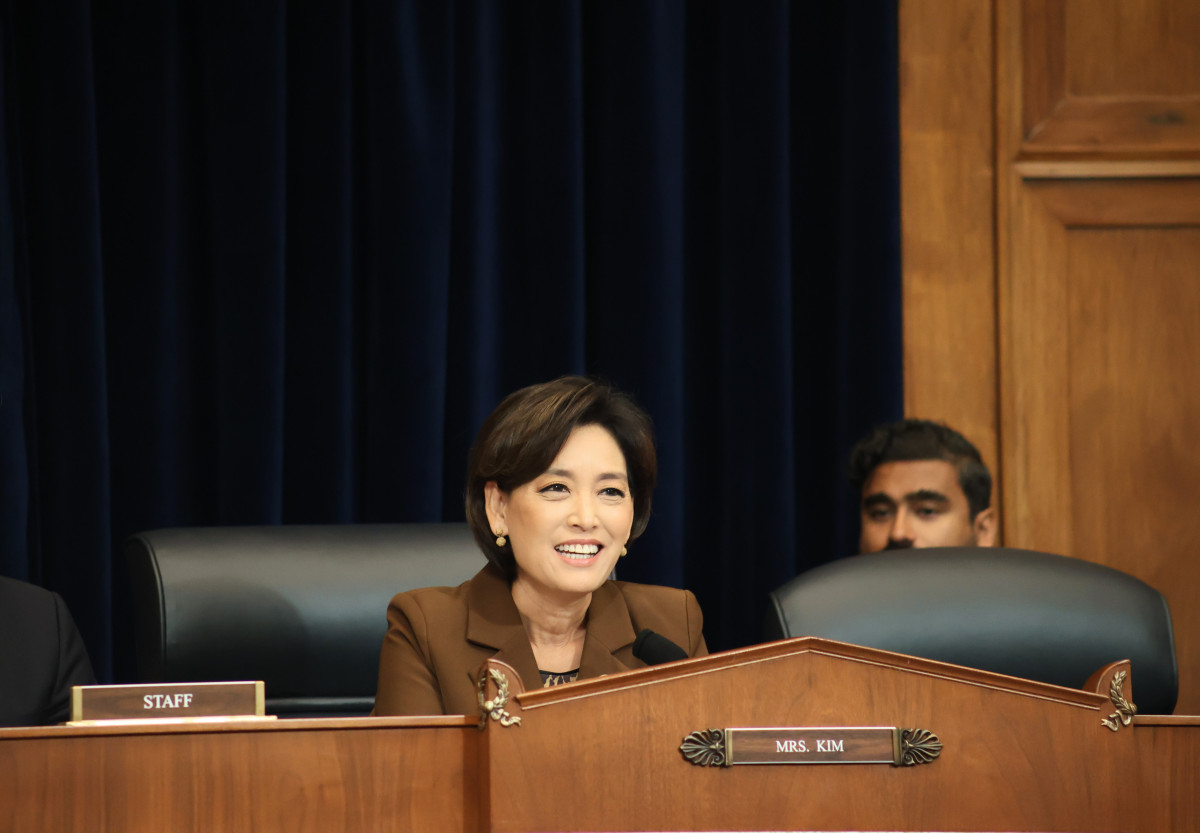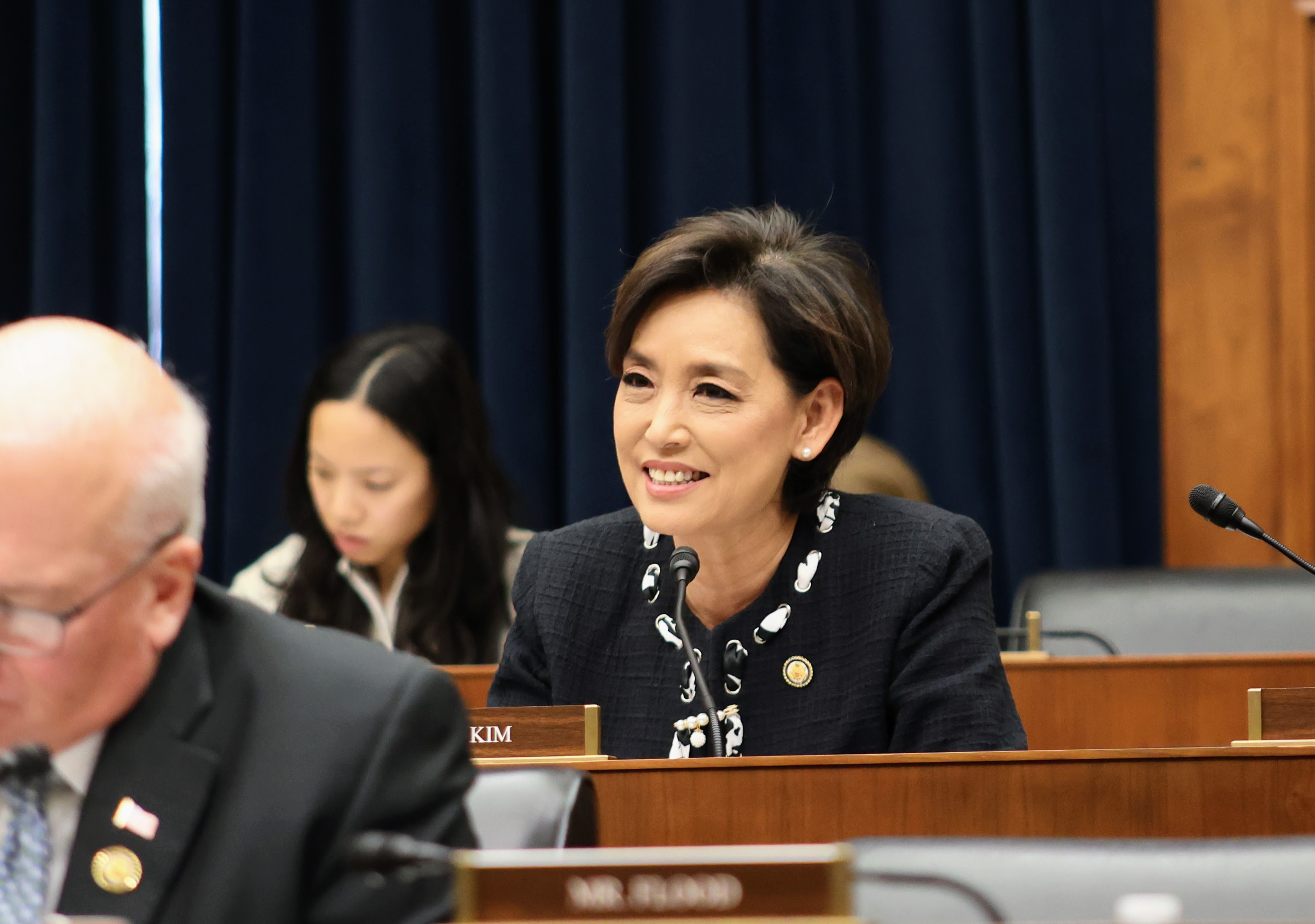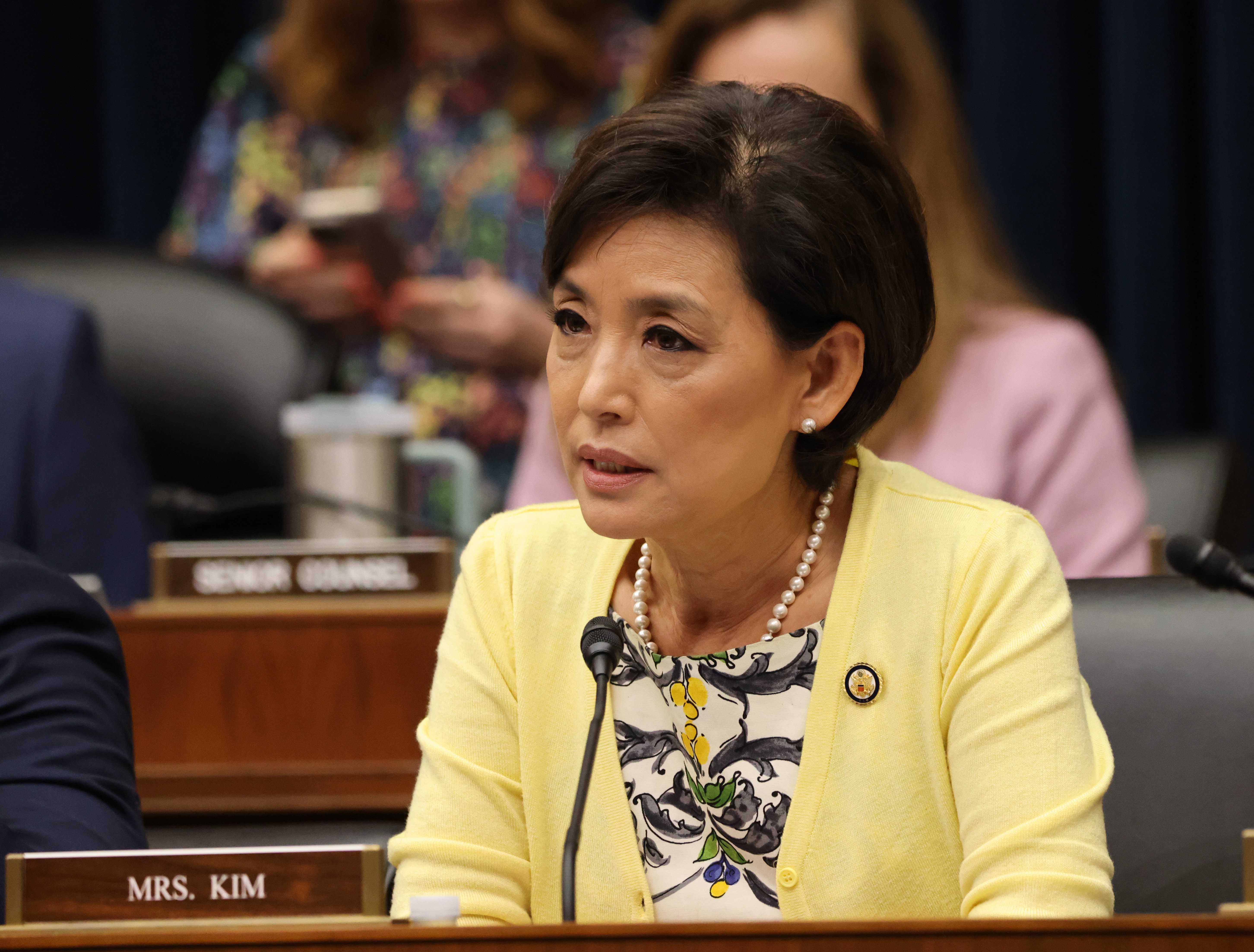Washington, DC — Today, U.S. Representative Young Kim (CA-40) joined Reps. Zach Nunn (IA-03) and Ritchie Torres (NY-15) to introduce bipartisan legislation to shield American markets from the catastrophic economic fallout of a potential Chinese Communist Party (CCP) invasion of Taiwan.
The Fortifying U.S. Markets from Chinese Military Aggression Act would create an advisory committee under the Financial Stability Oversight Council (FSOC) to develop an actionable plan to safeguard the U.S. economy in the event of CCP military escalation.
“Taiwan is not just a steadfast partner to the United States – it is home to 90% of the world’s advanced semiconductors that power our lives. The impact of a CCP attack on Taiwan on the lives of all Americans cannot be overstated,” said Rep. Young Kim. “The United States must be proactive in protecting our economy in case of an attack or blockade against Taiwan, and I’m glad to partner with Reps. Nunn and Torres on a bipartisan bill that would do exactly that.”
“While the United States has long-standing military plans in place to respond to a potential Chinese invasion of Taiwan, there’s no economic game plan,” said Rep. Nunn. “90% of the world’s advanced semiconductors are manufactured in Taiwan. The economic impact of that capacity falling into the hands of the CCP would be devastating, not just for global markets, but for Main Street Iowa businesses. This bipartisan bill ensures we have a clear, coordinated plan to respond.”
“American investors should never be in the business of bankrolling the CCP’s military. Our bipartisan bill is a clear-eyed effort to ensure American financial markets are not exploited to strengthen an authoritarian regime that threatens our values and our allies,” said Rep. Torres. “Transparency and accountability are not just economic principles: they are national security imperatives. I’m proud to work with Congressman Nunn to push for a bipartisan solution to safeguard the integrity of our markets and defend American interests.”
“Representatives Zach Nunn, Ritchie Torres and Young Kim are demonstrating the kind of forward-thinking leadership our markets urgently need. In today’s globally interconnected financial system, the economic consequences of a geopolitical crisis — particularly one involving China and Taiwan — could be swift and severe,” said Ari Rubenstein, Global Trading Systems CEO. “This bipartisan bill takes a critical step toward strengthening market resilience, enhancing coordination among regulators, and ensuring we’re not caught flat-footed. Capital markets thrive on stability and preparedness, and I applaud Congressmen Nunn, Torres and Kim for proactively addressing a risk that is too significant to ignore.”
The bill responds to growing concerns from financial analysts and national security leaders who warn that the U.S. has no economic contingency plan to address the ripple effects of CCP aggression in the Taiwan Strait. Taiwan produces nearly 90% of the world’s most advanced semiconductors, components critical to the global supply chain and U.S. national security.
If the CCP were to invade, economists estimate a short-term market drop of up to 34%. Bloomberg estimates a global GDP loss of $10 trillion, more than double the contraction caused by the 2008 financial crisis or the COVID-19 pandemic.
While military contingency plans exist, the U.S. currently lacks an economic response strategy to such an invasion. This bipartisan effort would build a framework for interagency and private sector coordination, ensuring Main Street and U.S. markets are better protected if geopolitical tensions escalate by:
- Establishing a 12-member FSOC Advisory Committee that would include market makers, asset managers, exchanges, and experts on China-related geopolitical risk.
- Tasking the committee with developing detailed reports and recommendations to identify market vulnerabilities and safeguard U.S. financial stability.
- Requiring FSOC to issue annual public reports on economic risks from a Taiwan conflict, including threats to U.S. banking and retaliatory actions from China.
- Providing recommendations to regulators to ensure U.S. capital markets are prepared for potential market volatility or trade disruptions.
Text of the bill can be found here.



